
The Russian Revolution was a period of political and social revolution that took place in the former Russian Empire which began during the First World War. This period saw Russia abolish its monarchy and adopt a socialist form of government following two successive revolutions and a bloody civil war. The Russian Revolution can also be seen as the precursor for the other European revolutions that occurred during or in the aftermath of WWI, such as the German Revolution of 1918.

Felix Edmundovich Dzerzhinsky, nicknamed "Iron Felix", was a Bolshevik revolutionary and official, born into Polish nobility. From 1917 until his death in 1926, Dzerzhinsky led the first two Soviet state-security organizations, the Cheka and the OGPU, establishing a secret police for the post-revolutionary Soviet regime. He was one of the architects of the Red Terror and decossackization.

The Department for Protecting the Public Security and Order, usually called Guard Department and commonly abbreviated in modern English sources as Okhrana was a secret-police force of the Russian Empire and part of the police department of the Ministry of Internal Affairs (MVD) in the late 19th century and early 20th century, aided by the Special Corps of Gendarmes.

Sergey Gennadiyevich Nechayev was a Russian communist revolutionary and prominent figure of the Russian nihilist movement, known for his single-minded pursuit of revolution by any means necessary, including revolutionary terror. He was the author of the radical Catechism of a Revolutionary.
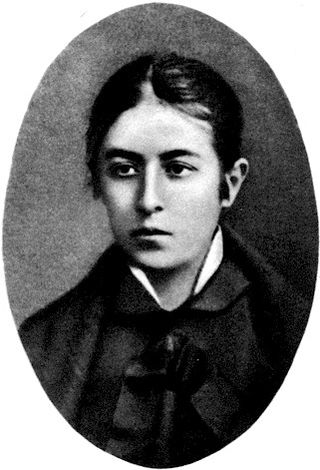
Vera Nikolayevna Figner Filippova was a prominent Russian revolutionary political activist.
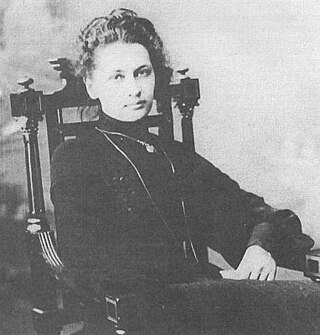
Yekaterina Pavlovna Peshkova, née Volzhina was a Soviet human rights activist and humanitarian, first wife of Maxim Gorky.
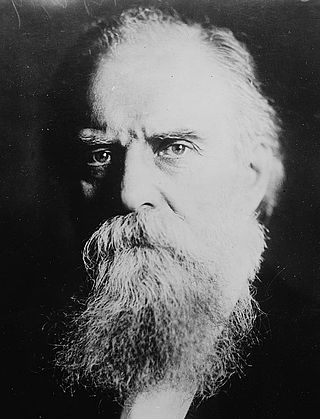
Nikolai Vasilyevich Tchaikovsky was a Russian revolutionary.

Adolf Pietarinpoika Taimi was a Finnish-Soviet Bolshevik and a member of the People's Delegation during the Finnish Civil War. After the civil war Taimi fled to Soviet Russia where he was one of the founding members of the Communist Party of Finland.
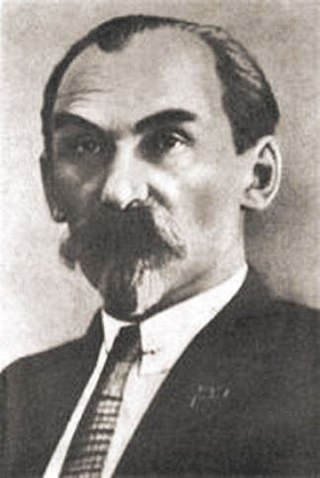
Mykola Oleksiiovych Skrypnyk, also known as Nikolai Alekseyevich Skripnik, was a Ukrainian Bolshevik revolutionary and Communist leader who was a proponent of the Ukrainian Republic's independence, and later led the cultural Ukrainization effort in Soviet Ukraine. When the policy was reversed and he was removed from his position, he committed suicide rather than be forced to recant his policies in a show trial. He also was the Head of the Ukrainian People's Commissariat, equivalent to the modern-day position of Prime Minister of Ukraine.
Anarchism in Russia has its roots in the early mutual aid systems of the medieval republics and later in the popular resistance to the Tsarist autocracy and serfdom. Through the history of radicalism during the early 19th-century, anarchism developed out of the populist and nihilist movements' dissatisfaction with the government reforms of the time.
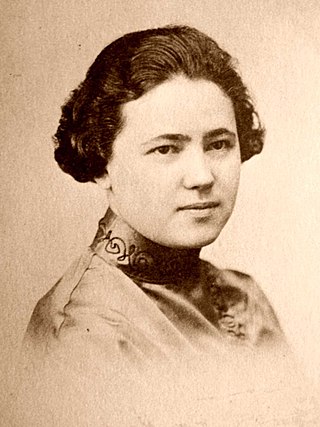
Mollie Steimer was a Ukrainian Jewish anarchist activist. After settling in New York City, she quickly became involved in the local anarchist movement and was caught up in the case of Abrams v. United States. Charged with sedition, she was eventually deported to Soviet Russia, where she met her lifelong partner Senya Fleshin and agitated for the rights of anarchist political prisoners in the country. For her activities, she and Fleshin were again deported to western Europe, where they spent time organising aid for exiles and political prisoners, and took part in the debates of the international anarchist movement. Following the rise of the Nazis in Europe, she and Fleshin fled to Mexico, where they spent the rest of their lives working as photographers.

Yemelyan Mikhailovich Yaroslavsky was a Bolshevik revolutionary, Communist Party functionary, journalist and historian.

Olga Ilyichnina Taratuta was a Ukrainian anarcho-communist. She was the founder of the Ukrainian Anarchist Black Cross.

Elena Dmitriyevna Stasova was a Russian-Soviet communist revolutionary who became a political functionary working for the Communist International (Comintern). She was a Comintern representative to Germany in 1921. From 1927 to 1937 she was the president of International Red Aid (MOPR). From 1938 to 1946, she worked on the editorial staff of the magazine International Literature.
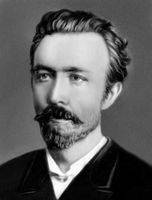
Yuri Nikolayevich Bogdanovich (1849–1888) was a Russian revolutionary and Narodnik. His cadre name was Kobozev

Lev Borisovich Kamenev was a Bolshevik revolutionary and a prominent Soviet politician.

The Anarchist Black Cross (ABC), formerly the Anarchist Red Cross, is an anarchist support organization. The group is notable for its efforts at providing prisoners with political literature, but it also organizes material and legal support for class struggle prisoners worldwide. It commonly contrasts itself with Amnesty International, which is concerned mainly with prisoners of conscience and refuses to defend those accused of encouraging violence. The ABC openly supports those who have committed illegal activity in furtherance of revolutionary aims that anarchists accept as legitimate.
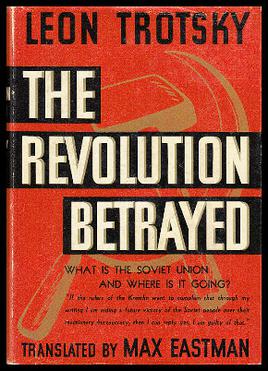
The Revolution Betrayed: What Is the Soviet Union and Where Is It Going? is a book published in 1937 by the exiled Soviet Bolshevik leader Leon Trotsky. This work analyzed and criticized the course of historical development in the Soviet Union following the death of Vladimir Lenin in 1924 and is regarded as Trotsky's primary work dealing with the nature of Stalinism. The book was written by Trotsky during his exile in Norway and was originally translated into Spanish by Victor Serge. The most widely available English translation is by Max Eastman.

International Red Aid was an international social-service organization. MOPR was founded in 1922 by the Communist International to function as an "international political Red Cross", providing material and moral aid to radical "class-war" political prisoners around the world.
The Solzhenitsyn Aid Fund was a charity foundation and support network set up by Aleksandr Solzhenitsyn and Alexander Ginzburg that distributed funds and material support to political and religious prisoners across the Soviet Union throughout the 1970s and 1980s.

















